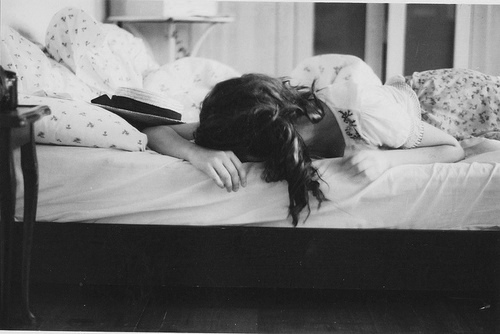Everybody wants a younger, healthier skin; especially young girls and women. There are many ways to achieve this, such as eating the correct foods and using the correct moisturising cream. But the most important advice to follow is to get enough of the right kind of sleep, every single night.
It is not always possible for everyone to get uninterrupted peaceful sleep every night, but that should be your aim on a regular base. When you sleep, the body regenerates itself. From 8 to 11 at night the body is hydrated and stimulated; from 11 to 3 in the morning nutrition and regeneration occur; and 3 to 5 is the time for resting. Melatonin is the hormone that triggers sleep; its secretion peaks at 11pm so most of us become sleepy then. The use of coffee late at night disturbs the function of melatonin, so it is best to avoid coffee a few hours before going to sleep.

While you sleep, the body rejuvenates skin cells and hair follicles. If you regularly do not get enough sleep, it means your skin does not repair itself sufficiently. You will also be stressed; this also affects your appearance and is very unhealthy for your body in the long run. Long term lack of sleep will result in sagging of the face and the forming of premature wrinkles. The skin will not be sufficiently hydrated. You will have noticed how fresh and dewy your skin looks after a good night’s rest; that is proof enough that sleep is essential for a healthy, glowing skin.
Why Skin Can Look Bad
The outermost layer of the skin needs to recover at night from the daily damage and stress your face endures. This layer, or corneum, locks in the moisture in your skin and it prevents microscopic foreign elements from entering the skin. The keratin in the corneum is a protein that prevents the excess loss of water from the skin through normal evaporation. Moisture in the skins keeps it plumped up and fills out the wrinkles.
The loss of hydration in the skin not only causes premature wrinkles, but also dark circles under the eyes. The fluid plumps up the skin and conceals the blueness of the blood vessels in the very delicate skin under the eyes. Less moisture means the blueness shows up prominently. The blood vessels are less full because of less moisture; your whole face appears paler and the skin looks dull because of old cells not having been sloughed off during sleep.
If the upper layer of the skin is compromised, it means your skin is more susceptible to the entry of foreign micro-organisms. These could cause skin diseases such as psoriasis or eczema, which negatively affect the appearance of your skin.
A Good Bed Is Essential
There are many ways to ensure that you have a good night’s sleep. A comfortable bed is the first essential ingredient. Sturdy mattresses on metal bed frames give your body good support and this enhances your sleep. The right pillow is also important, with an absorbent pillow case that is kept clean to avoid your skin being contaminated by sweat and trapped dirt. Sleeping on your back prevents permanent lines from forming on your cheeks.
How Much Sleep Do You Need?
Eight hours is the recommended time needed by most adults for optimum functioning and rejuvenation of the body, but each person has different needs. But be assured that sleeping enough will be ultimately beneficial to your skin, keeping it fresh and youthful-looking.
Zoe writes on behalf of Archers Sleep Centre, to help others get the best possible night’s sleep.

